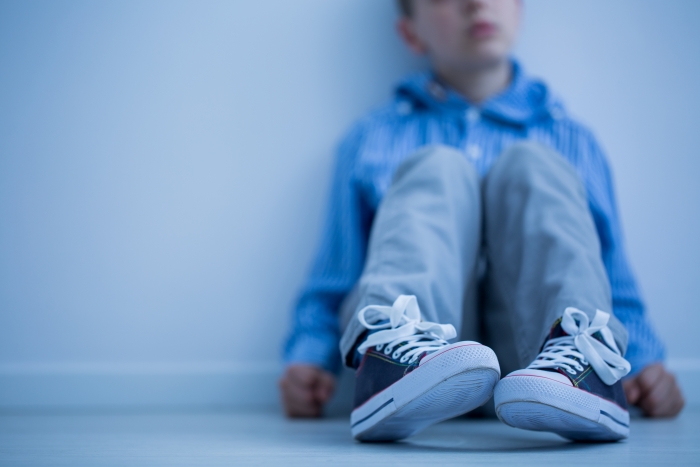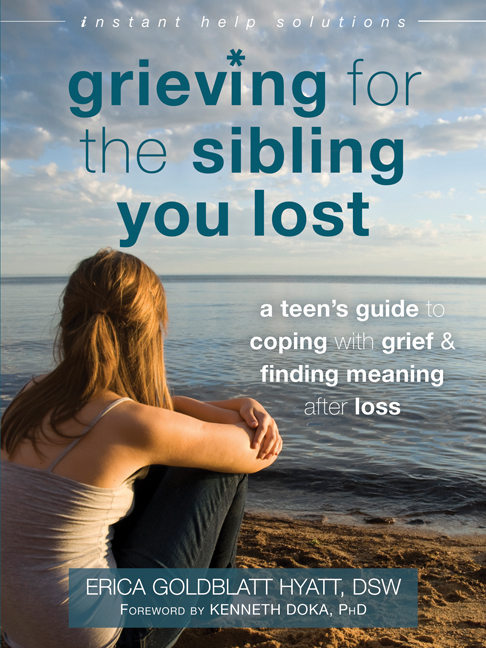By Erica Goldblatt Hyatt, DSW, author of Grieving for the Sibling You Lost
“Cause when the villains fall, the kingdoms never weep / No one lights a candle to remember / No, no one mourns ‘em all, when they lay them down to sleep / No don’t tell me that I didn’t have it right / Don’t tell me that it wasn’t black and white / After all you put me through / Don’t say it wasn’t you / That you were not the monster that I knew. ” –From “Requiem,” sung by Zoe in Dear Evan Hansen
Are you as obsessed with Dear Evan Hansen as I am? It is my favorite Broadway musical, and it’s really struck a chord with teens. The story focuses on the socially anxious and awkward Evan Hansen, who lies about his friendship with former bad boy Connor Murphy. The result is a series of situations that plunge Evan deeper and deeper into a web of outcomes he cannot control. One of these is a romantic relationship with pretty and popular Zoe, Connor’s sister. You see, Zoe didn’t get along with her brother. He wasn’t particularly kind to her, and even abused the help that Zoe and her parents provided as he struggled with substance abuse, truancy, and other problem behaviors. In “Requiem,” Zoe argues, “Why should I play the grieving girl / And lie saying that I miss you / And that my world has gone dark without your light?” Zoe struggles with her uneasy relationship with her brother, and feels pressure from the kids and grownups around her to be sad and act sad.
I wrote my book, Grieving for the Sibling You Lost, for teens just like Zoe, as well as others who have experienced the death of a brother or sister. There are so many feelings that come up when a brother or sister dies, and they don’t always include happy or easy memories. In fact, like Zoe, I have heard quite a few siblings say that they feel pressured to feel sad after the death, but they also feel guilty because they didn’t always (or sometimes ever!) have a good relationship with the brother or sister that died.
It’s normal for you to look to adults in your life who are older and seemingly more experienced to understand how to grieve. There might be parents, teachers, or mentors who appear to have certain prescriptions or expectations about how brothers and sisters experience the loss of a sibling. The important thing to know is that these adults may feel as confused about how to grieve as you do, and may sometimes, in their own grief, send the wrong messages. If they were close to the sibling you lost, they may not even be able to understand that your grief might look different, because your relationship with your sibling was different than theirs was. Grief can cause us to turn inward, focusing on our own feelings, and forgetting that others may feel differently. In our attempts to find connection and comfort after a loss, we may assume that everyone feels the way we did about the person that died, but that’s just not true.
There is no one way to grieve the loss of a brother or sister. You may have had a really wonderful relationship with your sibling, and miss having them around from day to day, or maybe you feel completely numb and it hasn’t hit you yet. Maybe your sibling, like Connor, was troubled, and you even feel relieved that the focus is off of him, for once. Maybe that relief makes you feel guilty, because you know you “should” feel sad, but you just don’t. The beauty of “Requiem” is that Zoe challenges the traditional notion of how teen siblings are supposed to grieve, according to the adults in their lives. Connor was a villain in her life story, and, according to the lyrics in a recently released solo version of the song, a “flood that swallowed us whole / Abusing a love we endlessly gave you / You were a fire out of control.” This doesn’t sound like a brother that was easy or fun to live with! His death does not end or resolve the complicated relationship that he had with his sister.
In Grieving for the Sibling You Lost, I teach teens about grief and how it shows up in different kinds of thoughts, feelings, and behaviors that are unique to each and every sibling that has experienced the death of a brother or sister. I tell the stories of teens just like you who struggled to cope with life after loss, and I provide a useful quiz to help you identify you very own personal grieving “style.” Then, I tell you how you can begin to heal.
The best part of my work has been hearing from teenagers that my book has helped them feel like their grief, in whatever form it takes, is normal, and now they have some tools for coping. If Zoe were real, I would tell her to pick up my book and look for the chapter about The Old Soul: this is the teen who feels forced to grow up too fast and take care of others in her life at the expense of her own experience. Zoe is smart and mature, but her grieving parents may be expecting too much of her or relying too much on her to “move forward” or “push through” the loss of Connor. It’s okay for her to struggle with finding meaning after loss, and it’s okay for her to not always be a straight-A student.
Dear Evan Hansen is creating a conversation about teen sibling grief that is refreshing and validating to so many bereaved teen siblings across the country. I’d love to hear from you if you feel this way too.
Erica Goldblatt Hyatt, DSW, is assistant professor and department chair of psychology at Bryn Athyn College. Over the course of her career, she has served as a hospital administrator, mental health clinician, academic advisor, family informed trauma treatment therapist, and clinical oncology social worker to both adult and pediatric populations.



 2024 Peace Playbook: 3 Tactics to Avoid Clashes with Your Partner
2024 Peace Playbook: 3 Tactics to Avoid Clashes with Your Partner